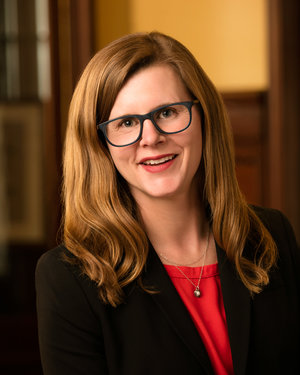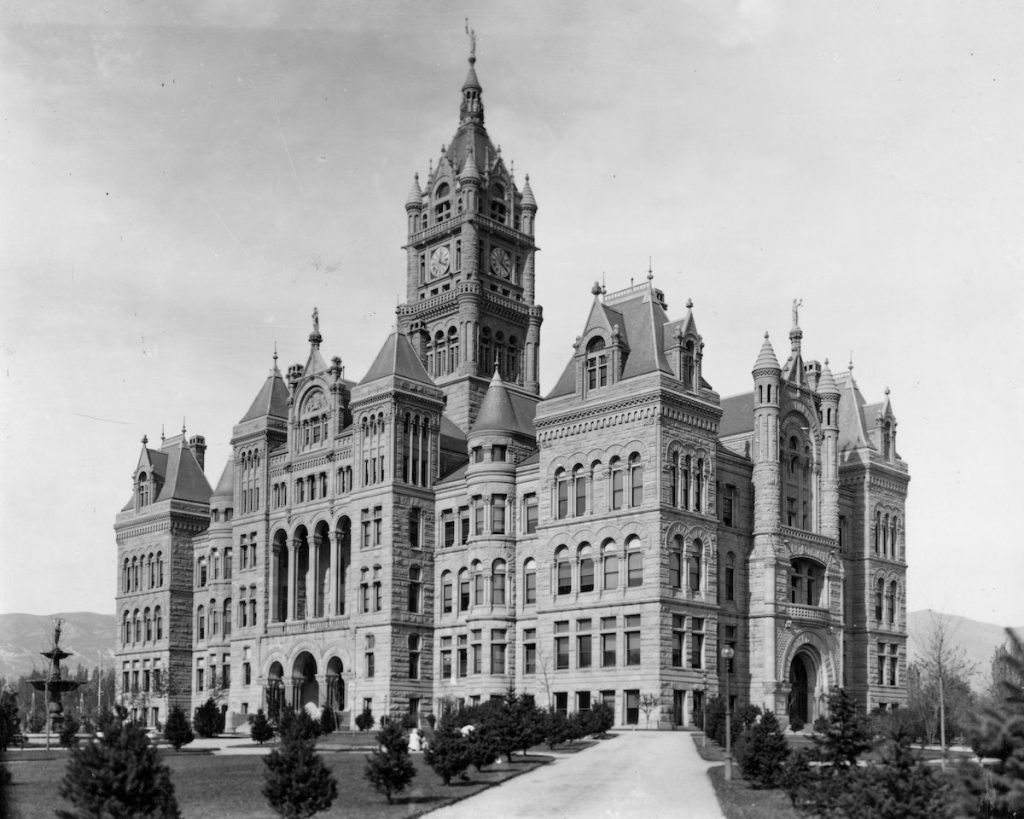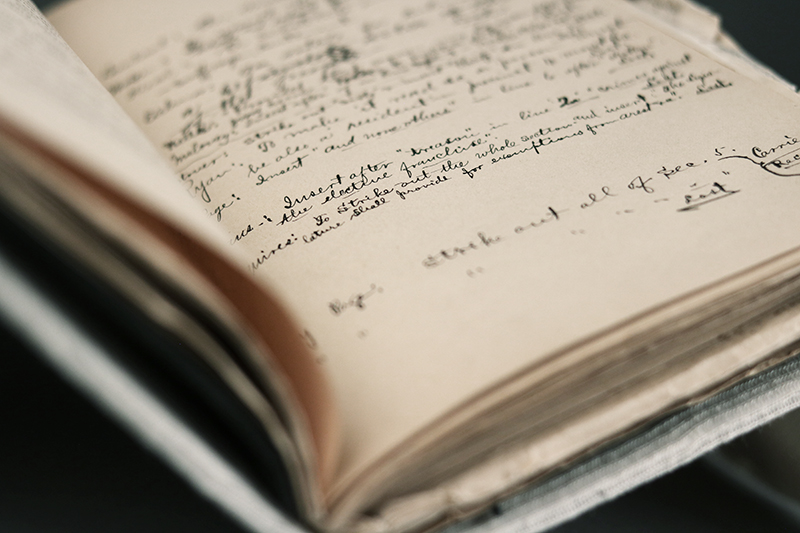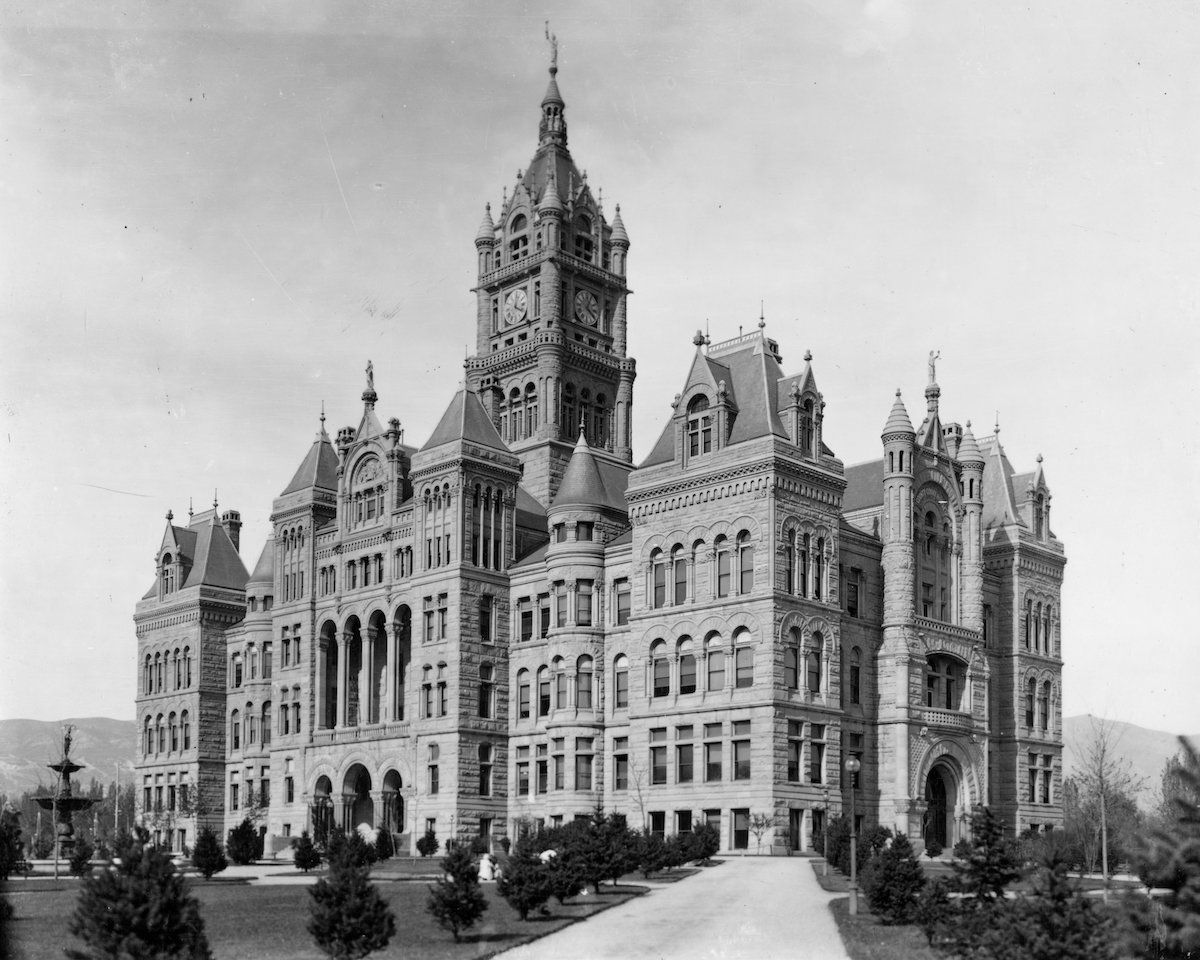
One hundred and twenty-five years ago this year, Utah became the forty-fifth state to enter the Union, ending a long, painful struggle to be so recognized. As state officials ask the public to celebrate the anniversary, the moment is ripe for historians to reflect on the statehood experience. At this commemorative juncture, how might you distill in a few spoken minutes the meaning of statehood? This deliberately open-ended question is designed to prompt broad and diverse reflections of Utah as a geographical place, political entity, and/or cultural community.
Utah was admitted to the Union in 1896; at that time, every contiguous western state except New Mexico and Arizona had gained statehood. Utah had been fighting for this statehood for nearly fifty years, watching as their neighboring territories became states long before. Certain arguments contend that other states gained admittance for economic reasons, as the Union sought to profit from gold- and silver-rich states like California and Nevada. Others argue that it was the contentious history between the early Mormon settlers and the federal government, along with the continued practice of polygamy, that delayed admittance. Finally, there are those who argue that Utah’s statehood was delayed for political reasons. While there are compelling points to each argument, it is the final one that I will focus on—and the parallels we see in current American politics. Additionally, early Utahns fought to be part of the nation they had just fled, not just for advantages of statehood, but for the belonging and acceptance Utahns have yearned for ever since.

There are those who argue that Utah’s statehood was delayed for political reasons.
As Congress debated admittance of each western state throughout the latter half of the nineteenth century, they considered a complicated set of circumstances for every territory. Beyond the economic, demographic, and geographic considerations, were the political ramifications. Each state meant at least one new congressional seat and two senate seats—which gave especially small states an outsize influence. Any changes could swing majorities in the tenuous years before secession, the violence of the Civil War, and as the country tried to mend itself back together these majorities also could determine the fate of the tariffs, treaties, and the balance of the Supreme Court.
As the last several presidential elections have shown, the balance of the US Senate is still a crucial component of American politics. In 2016, many Utah Republicans were turned off by former President Donald Trump’s candidacy but responded to arguments that voting for him would ensure a conservative federal bench. The Electoral College has also shown that small, primarily Republican states still have punch above their weight and hold considerable power both in presidential elections and in the US Senate. Interestingly, we hear these same partisan arguments today when people discuss statehood for Puerto Rico or the District of Columbia, as many contend their admittance would ensure Democratic majorities in the Senate.
We hear these same partisan arguments today when people discuss statehood for Puerto Rico or the District of Columbia, as many contend their admittance would ensure Democratic majorities in the Senate.

The last several elections have also shown the emerging power of voters who are members of the Church of Jesus Christ of Latter Day Saints. In 2008, Mitt Romney lost his bid to become the Republican presidential nominee. He became the candidate in 2012, and along with the hit Broadway play Book of Mormon, many dubbed the year as the “Mormon Moment.” Though Romney was from Michigan and had served as governor as Massachusetts, his religious affiliation and tie to the 2002 Winter Olympics held in our state made people associate him with Utah. This turned the national spotlight on Utah and our politics. This occurred again in 2016 when Utah Republicans were reluctant to support the Trump candidacy. The attention given the state could show Utahns are finally gaining the recognition and acceptance they have long hoped for. Yet, as conservative LDS voters have become the most loyal religious group to the Republican Party, some analysts argue this has put them out of touch with modern America. Indeed, it was moderate or left-leaning suburban LDS voters that garnered attention in the 2018 midterm election in Utah and 2020 presidential election in Arizona.
As we recognize the 125 years since Utah gained statehood, several themes remain true. As a small Republican state, the importance of our votes in determining the balance of the senate and thus the future of the federal court system remain important. Secondly, though Mormon pioneers were fleeing the United States, they still spent nearly half a century to gain admittance and back into it. We still see this striving for acceptance today in how we vote and work to gain recognition from our fellow citizens.
